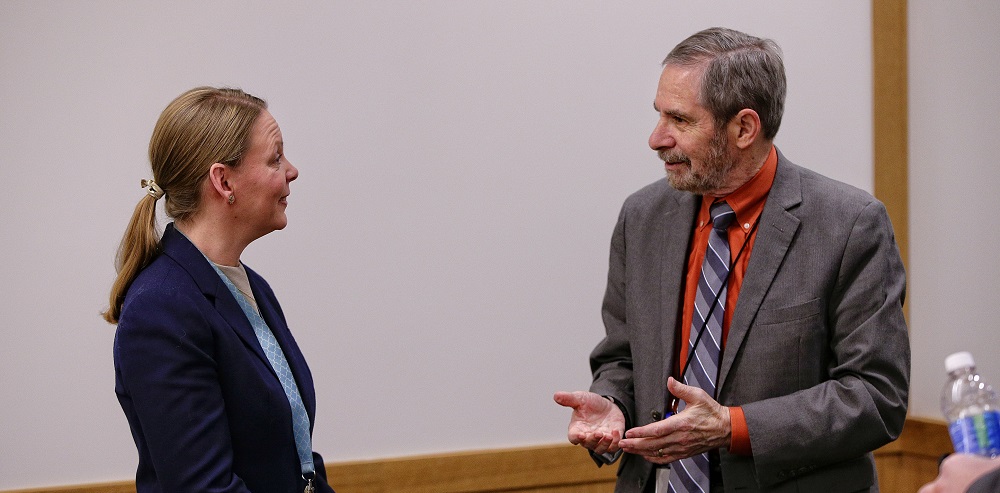Researcher highlights opioid epidemic

Kentucky has been significanty impacted by two major health concerns facing the nation: the opioid epidemic and cancer. The state’s cancer incidence and mortality rates are the worst in the country, while deaths related to opioid overdose continue to rise year after year.
Given those trends, it’s no surprise that Doug Lowy, MD, the acting director of the National Cancer Institute, and Norma Volkow, MD, the director of the National Institute of Drug Abuse, visited Eastern Kentucky in October 2016 to learn more about these two health burdens and how they intersect.
Opioid use and cancer may seem unrelated, but research from the University of Kentucky Center on Drug and Alcohol Research is showing how one disease impacts the other.
Jennifer Havens, PhD, an epidemiologist at the center, had the opportunity to speak with Lowy and Volkow during their visit about her work examining the impact of injection drug use in Appalachian Kentucky. Since 2004, Havens has been assessing the rise of injection drug use and the related outbreak of the hepatitis C virus, or HCV.
HCV is important in the connection between opioid use and cancer. It causes inflammation of the liver which, left unchecked, increases an individual’s risk of developing hepatocellular carcinoma, or liver cancer. Because many injection drug users become infected with HCV, preventing the contraction of this disease is important to preventing the development of liver cancer.
“Across the UK campus, teams are conducting research and implementing programs in Appalachia to understand and support an underserved population who are being significantly impacted by these two deadly diseases.”
– B. Mark Evers, MD
Havens’ research is an example of the multidisciplinary work that is possible at UK, where scientists from different specialties can come together to find novel ways to address the needs of people in Kentucky.
B. Mark Evers, MD, director of the UK Markey Cancer Center, knows that combating the cancer burden in Kentucky must include examining the relationship between opioid use disorder and liver cancer and addressing both diseases.
“Across the UK campus, teams are conducting research and implementing programs in Appalachia to understand and support an underserved population who are being significantly impacted by these two deadly diseases,” Evers said.
“The opportunity to share that important work with leaders at the federal level means the stories of our patients and research participants are being heard at the highest levels and being considered when decisions are made on how best to address these two epidemics.”





